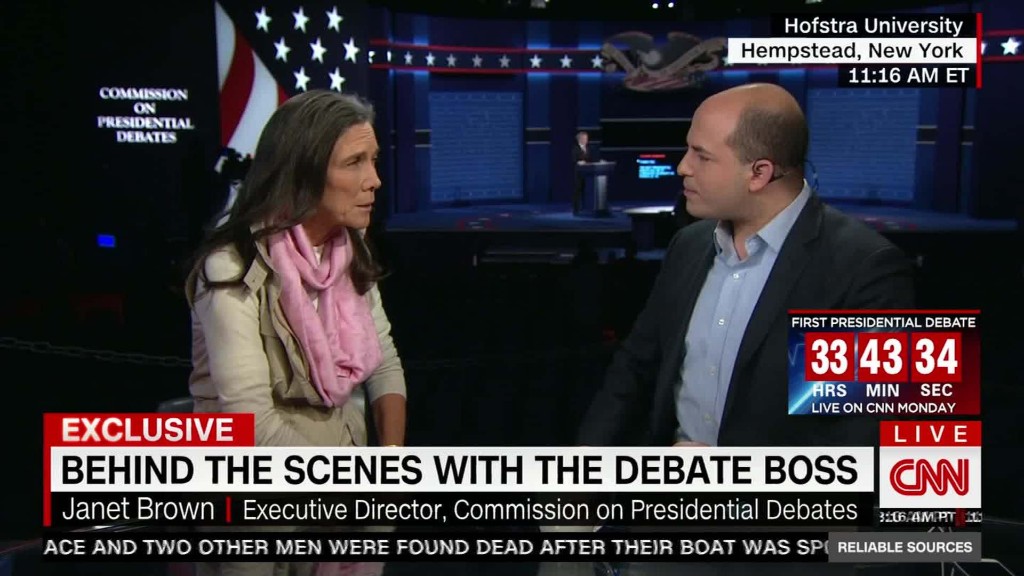
The U.S.' first televised presidential debates didn't involve any major gaffes or zingers or other pithy soundbites; they were wonky back-and-forths about policy. But those debates, between Richard Nixon and John F. Kennedy in 1960, created the model for debates on TV, in which style can matter more than substance.
In the Kennedy-Nixon debates, radio listeners famously thought Nixon fared better, while those who watched on TV in 1960 were struck by Kennedy's handsome appearance and put off by Nixon's pallid complexion and an ill-chosen gray suit that blended into the background.
In the years since, matters of substance have produced what were deemed memorable gaffes, although such moments may not have similar impact this year, in what's been described as a post-truth campaign. Much of the focus, rather, will likely be on style points, as well as memorable zingers or one-liners, which tend to be what most people can remember about debates past -- along with the spoofs of them on "Saturday Night Live."
Here are several of the key moments from debates since 1960 that will surely be in the minds of commentators looking for comparisons to what transpires between Hillary Clinton and Donald Trump (as well as Tim Kaine and Mike Pence) tonight and in October:
Carter-Ford (1976): Then-President Gerald Ford made a serious gaffe when he stated there was "no Soviet domination of Eastern Europe," which would have come as news to countries living behind the Iron Curtain. What Ford later characterized as an inarticulate moment wound up causing a major stir.
Mondale-Reagan (1984): Ronald Reagan's age (he was 73) had become an issue, especially after he performed poorly in his first debate with Walter Mondale, including a rambling closing statement. Reagan defused the matter with a well-delivered joke during their next encounter, saying, "I am not going to exploit, for political purposes, my opponent's youth and inexperience." He went on to win reelection in a landslide.
Bush-Dukakis (1988): Moderator Bernard Shaw hit Michael Dukakis with what was, by any measure, a tough question, asking if he would maintain his opposition to the death penalty if his own wife, Kitty, were raped and murdered. Dukakis flubbed the response, betraying not a hint of emotion at the hypothetical and going straight into a wonky policy explanation.
A writer for Time derided Dukakis' response as sounding like "a time-and-temperature recording."
Bentsen-Quayle (1988): The vice presidential debates seldom make the cut in these discussions, but Lloyd Bentsen was clearly waiting for Dan Quayle, George H.W. Bush's running mate, to compare his relative inexperience to that of Kennedy when he ran for president.
"I knew Jack Kennedy. Jack Kennedy was a friend of mine. Senator, you're no Jack Kennedy," Bentsen responded, to howls from the audience. Bush and Quayle won the election, but the bruise left by that remark lingered.
Bush-Gore (2000): It seems almost quaint to make an issue of it now, but Al Gore's repeated, exasperated sighs in response to George W. Bush's answers became a focal point of the post-debate analysis.
Another awkward moment came during the town-hall format (which allowed the candidates to roam the stage, as opposed to just standing behind lecterns) when Gore stood and approached Bush -- in what some described as an effort to intimidate him -- prompting Bush to nod at him in the middle of his answer.
Biden-Palin (2008): The mic caught Sarah Palin asking Joe Biden, "Hey, can I call you Joe?" when they shook hands before their vice presidential debate, which helped set up her "Say it ain't so, Joe" line later on.
Palin was generally perceived as having surpassed low expectations, perhaps in part because Biden appeared so determined to not look as if he were being rude or abusive.
Obama-Romney (2012): While it may have lacked one single signature moment, pundits and polls overwhelmingly gave the opening debate to Mitt Romney, suggesting that President Obama had sleepwalked his way through it, and even comparing his sluggish performance to Reagan's first outing in '84.
In a consideration regarding a new medium that would have been unthinkable before the 2008 debate, the New York Times later quoted Obama deputy campaign manager Stephanie Cutter as telling the staff, in real time, ""We are getting bombed on Twitter." Obama rallied in the subsequent debates.


